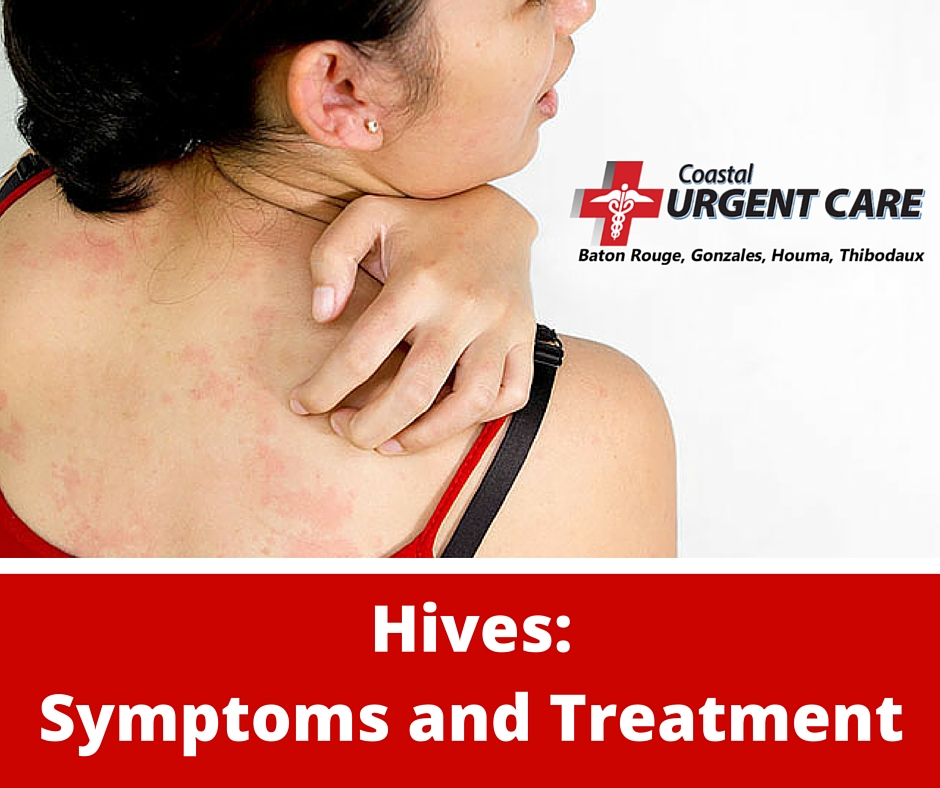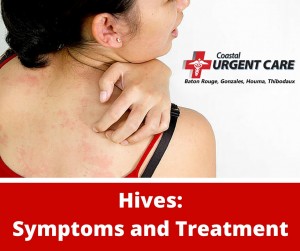
 Raised itchy bumps, skin-colored or red, that turn white when you press them are called hives. Hives are a fairly common reaction, affecting about 20% of people at some point in their lives. They can have a wide variety of triggers, and can be anywhere from a mild annoyance to severe. Here’s what you need to know.
Raised itchy bumps, skin-colored or red, that turn white when you press them are called hives. Hives are a fairly common reaction, affecting about 20% of people at some point in their lives. They can have a wide variety of triggers, and can be anywhere from a mild annoyance to severe. Here’s what you need to know.
What are hives?
A person can get hives when histamine causes a person’s blood plasma to leak out of small blood vessels in the skin. This leaked plasma causes mild swelling and itching, but can also burn or sting. Histamine is released in response to a trigger. Triggers can be anything from pollen to sun exposure:
- Bacterial infections
- UTI’s and strep throat
- Pollen
- Certain foods
- Especially peanuts, eggs, nuts, and shellfish
- Certain food additives
- Latex
- Pet dander
- Medications
- Antibiotics like penicillin and sulfa
- Aspirin
- Ibuprofen
- Physical stimuli
- Pressure, heat, cold, sun exposure, or exercise
- Insect bites/stings
- Viral infections
- Cold
- Infectious mononucleosis
- Hepatitis
- Blood transfusions
- Plants
- Poison oak
- Poison ivy
Symptoms of hives
Hives may seem like bug bites, but are actually a bit different. Since they’re caused by your blood vessels leaking plasma, they can appear anywhere. They may also change shape, move around, or disappear altogether only to come back later. There are two types of hives: acute and chronic. Acute hives last less than six weeks, and it’s usually fairly easy to identify and remove the cause. Chronic hives last more than six weeks, and it’s more difficult to identify their cause. Chronic hives can be caused by other underlying conditions, such as thyroid disease, hepatitis, cancer, or other various infections.
A similar condition, angioedema, causes swelling beneath the surface of the skin. It usually goes away within 24 hours. Typically the area around the eyes and lips will swell, but the hands, feet, and genitals may also swell. Angioedema of the tongue, throat, or lungs can restrict breathing, and may become life threatening. This requires immediate emergency care.
Treatment of hives
Hives may only be around for a few minutes, or last for months! Even years! They’re different for everybody. If you can identify a trigger, remove yourself from it, then see an allergist. They’ll be able to test you for triggers, and recommend medication based on those triggers. The treatment will depend largely on how uncomfortable the hives make you. It may be mild enough to manage with over the counter medication, or you may need a prescription.
